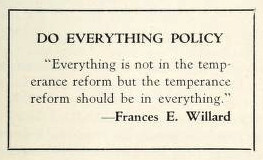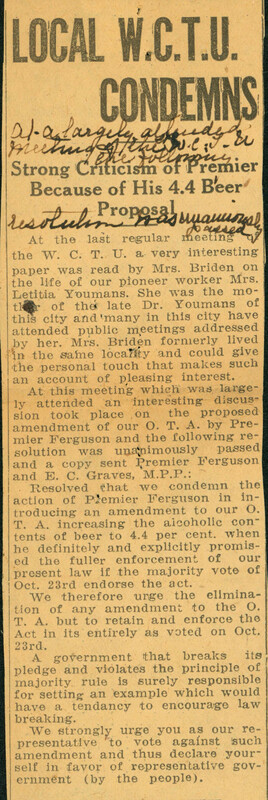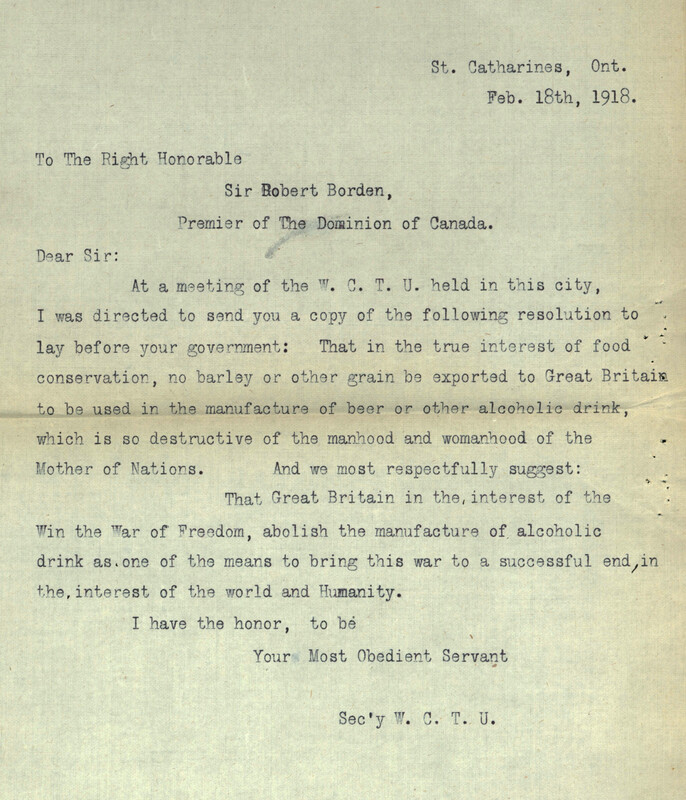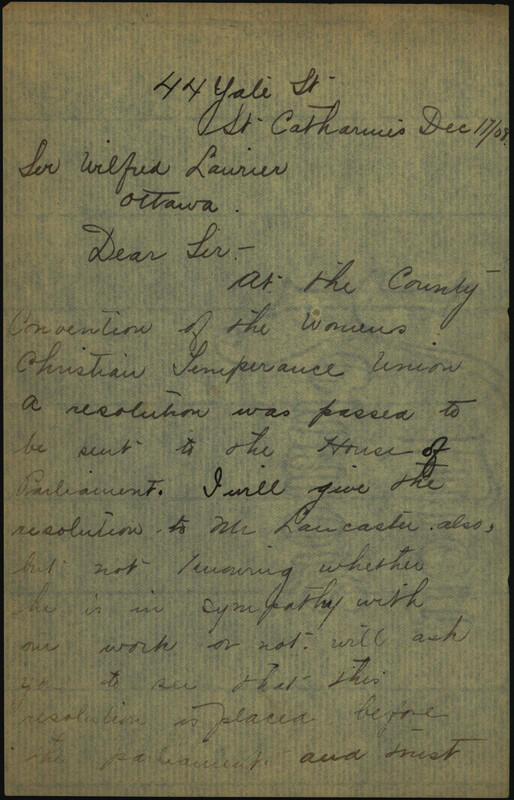Getting Political
In the early days of the Union, the women lacked the privilege of making a stance at the voting booth. So instead, they worked hard to get the attention of politicians to make the changes they desired. Legislation was on their side in 1864 when the Dunkin Act was passed which allowed municipalities to use referendums to achieve temperance. The strength of the Scott Act passed in 1878 was also beneficial for the WCTU as it allowed referendums on a national scale.
The Woman's Christian Temperance Union was fighting a battle but had no vote of their own. There were opportunities like the Mowat Plebiscite in 1894 that allowed women who had property qualifications to vote. The Ontario WCTU encouraged these women and the result was 12,402 women voted for prohibition whereas only a little over 2000 voted against. They had hoped for legislation in their favour, but by 1897, they had only been granted 130 fewer (liquor) licenses and an increase of legal age from 18 to 21. They had aspirations to wipe out alcohol altogether as a community concern, but the government was not willing to give them what they had hoped for with the Mowat Plebiscite.
The Lincoln County WCTU worked tirelessly to gain the attention of government officials including any sitting Prime Ministers. Their efforts included writing to Premier Borden in 1908 asking that his government set an example for the young men of Canada and remove the bar from the House of Parliament.
During World War I, the WCTU was involved in writing to Prime Minister Sir Wilfrid Laurier to encourage the end of exporting of goods used to manufacture alcohol in Great Britain. Each county was responsible for communicating the same resolution, thereby creating a deluge of letters of concern over the issue. By 1916, there were over 850 municipalities that had decided to go dry and soon a more substantial victory was secured. On 16 September 1916, the Ontario Temperance Act went into action, banning the sale of alcohol and shutting down over 1400 bars. The political pursuits of the WCTU never rested on the results of the Ontario Temperance Act, but to their dismay, the Liquor Control Act of 1927 destroyed much of their decades long endeavors.
"...1927 sees our Province under the well-named Liquor Control Act. One of the greatest blots in the annals of our Country has been unearthed by a Commission, showing defiance of Federal Law, non-payment of taxes, acknowledged payments of huge sums to both parties for election purposes, and an open disregard for the Prohibition Law of a friendly nation by vested interests. These things the traffic openly acknowledged." (S.G.E. McKee, 192?)




